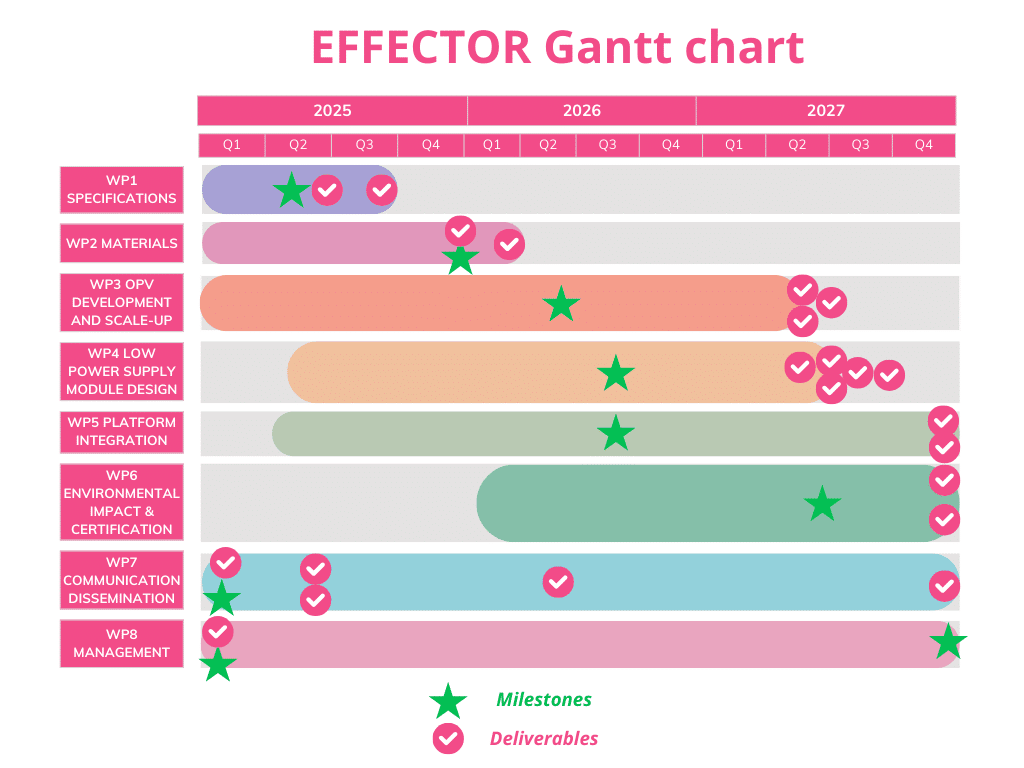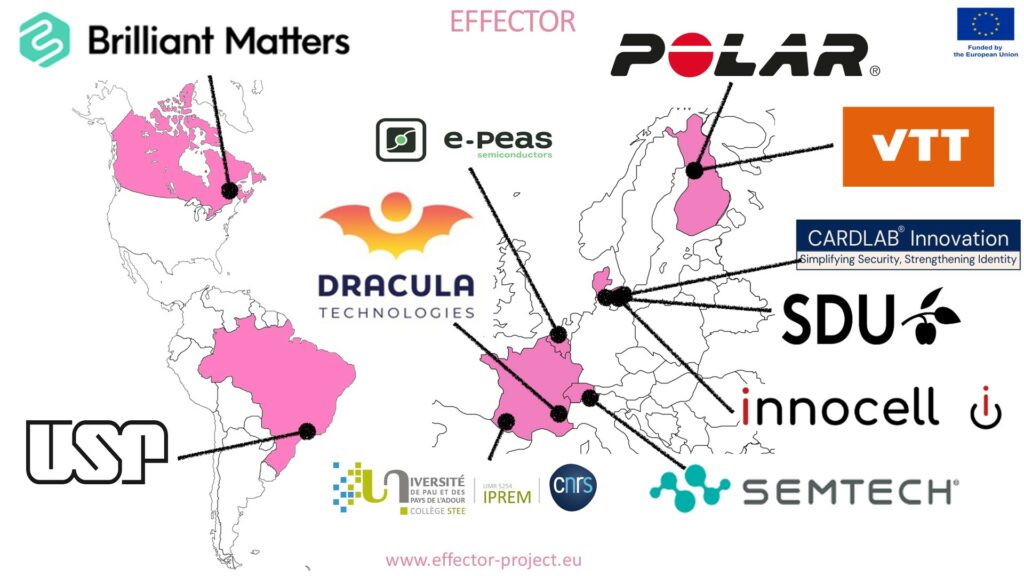Effector project
EFFECTOR is an European research project on organic photovoltaics, led by the CNRS. Lasting 3 years (2025 January to 2027 December), it aims to develop more efficient and sustainable organic solar cells.
Our mission
The Efficient Organic Photovoltaic Sensors (EFFECTOR) project will provide innovative and environ-mentally friendly solutions for digital and wearable electronics at TRL7. These objects will be individu-ally powered by the exploitation of low-intensity light and will be made from sustainable materials for a bright digital future.
EFFECTOR will create new sustainable European value chains for photovoltaic technologies and open up new innovative business-to-business operations by doubling the efficiency of non-toxic organic solar cells for use under low-level light. It will couple in a streamline way with non-toxic and sustaina-ble supercapacitors with advanced low power electronics.
EFFECTOR’s strategy is to bring solar cell technology to mainstream use by eliminating the need for mains electricity from everyday human-centred electronics. It will develop sustainable materials and processes, using non-toxic materials and reducing environmental impact, applicable to a wide range of human-centric technologies and innovations.
EFFECTOR draws on the world-leading inkjet OPV (organic photovoltaic cells) manufacturing of Drac-ula Technologies, on Innocell’s sustainable and non-toxic aqueous supercapacitors and on e-peas’ high-fidelity power management systems.
Together with its leading academic partners in solar cell design (SDU), high throughput industrial elec-tronic printing and integration (VTT), and polymers for solar cell stabilization (CNRS), it will demon-strate this innovative, multi-faceted approach in vital health monitoring with Polar and in wearable device applications with CardLab’s biometric card technology. EFFECTOR will demonstrate how in-door and low-level light can power our future in a secure, reliable, and sustainable way.
Objectives and expected impact
This project Efficient Organic Photovoltaic Sensors (EFFECTOR) has the two overarching objectives of
- Raising the efficiency of organic photovoltaic devices (OPVs) by 100% above the state-of the-art so that an industrial 42 cm2 panel can deliver more than 1100 μW under 1000 lx LED light
- Developing a template for OPV integration into Internet of Things (IoT) applications so that they will be used without mains power and become a sustainable human-centric non-polluting technology
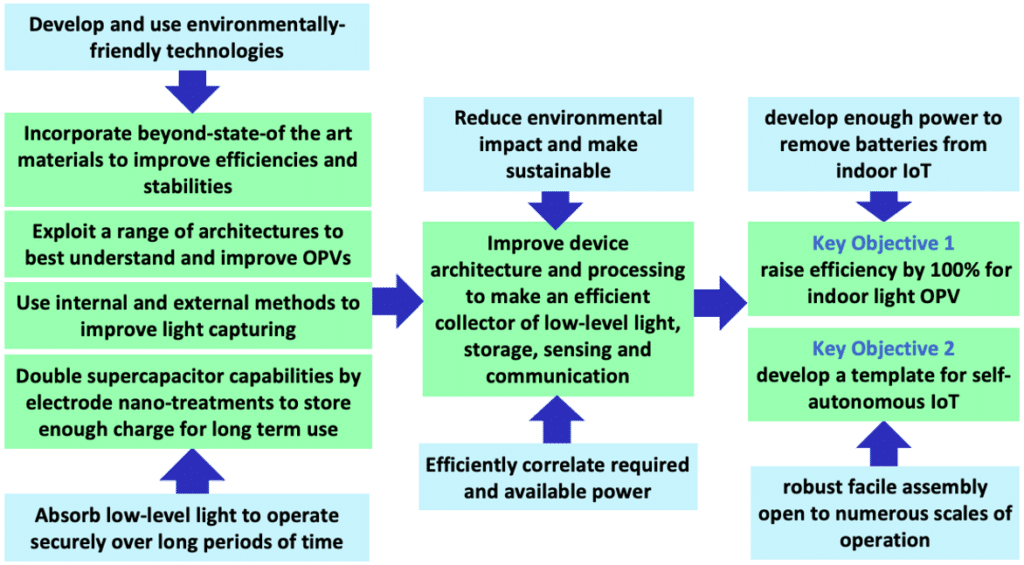

EFFECTOR is motivated to eliminate the need for a power source.
By 2025, the world will more than likely have at least 75 billion electronic objects connected to the internet. This is a staggering number, qualified by the knowledge that for one small part alone, the security market itself generated 6 billion Euros in 2020, and will show an annual growth rate of nearly 20% over coming years.
Consortium members
Advisory Board
Patricia Targon Campana
(USP)
Philippe Grenier
(Brillant Matters)
Managing structure

Work plan and Work Packages
Overall methodology
How EFFECTOR confronts its constraints to deliver innovation.
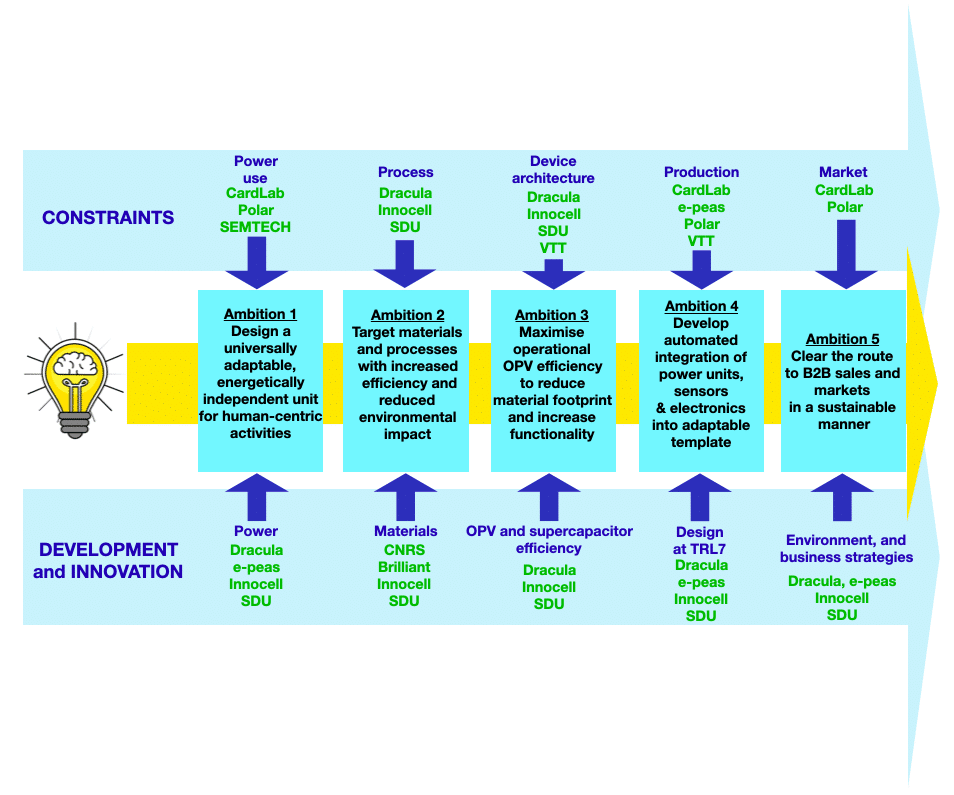
How EFFECTOR makes the device
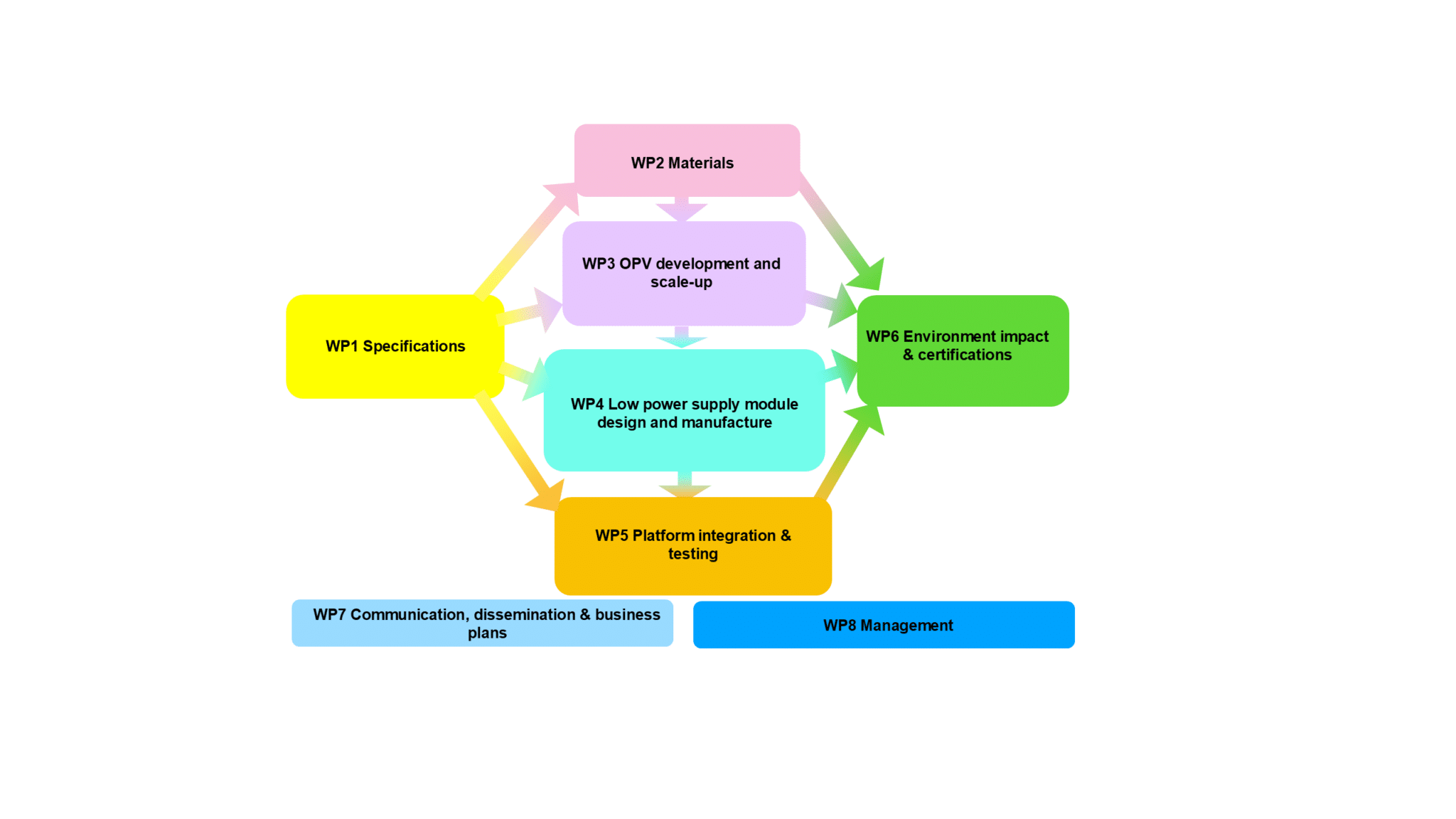
Global work plan
Schedule
Next steps
- 31 March 2025: Low Power applications specifications
- 10-11 June 2025: Supervisory Board meeting in Sonderborg, Denmark
